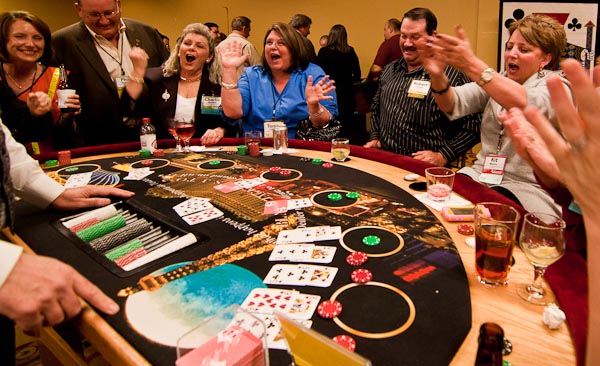Understanding the psychology behind winning and losing in gambling is essential for any player looking to enhance their experience and cultivate a successful mindset. While winning can evoke feelings of euphoria and triumph, losses often bring about frustration and disappointment. It’s crucial to embrace both outcomes as part of the journey and learn how to navigate the emotional landscape that comes with them.
Winning: The Highs
Winning can create an adrenaline rush, making players feel invincible. The brain releases dopamine, reinforcing the behavior that led to the victory. However, it’s essential to remember that success can sometimes breed overconfidence. It’s vital to:
- Stay grounded and avoid letting victories define your self-worth.
- Recognize that gambling results are often a mixture of chance and skill.
- Celebrate wins but prepare for losses, understanding that they are part of the game.
Losing: The Lows
Losses are tough. They can trigger negative emotions that impact not only your gaming experience but also your overall mental health. Acknowledging these feelings is the first step toward managing them. Here’s how:
- Accept your emotions – it’s normal to feel upset after a loss, but don’t let it overpower your thoughts.
- Analyze your mistakes objectively. Use losses as a learning opportunity to improve your strategy.
- Practice self-compassion; remember, every player faces setbacks.
Ultimately, the psychology of winning and losing is about balance. Embrace the wins but don’t be deterred by the losses. Focus on building a healthy mindset that allows you to enjoy the game regardless of the outcome.
Remember, each spin of the wheel or flip of the card is part of your journey. Keep your head high, learn, adapt, and allow yourself the grace to experience both the highs and lows of gambling. With the right mindset, you can transform any experience into a stepping stone toward your personal growth as a player.
Handling Tilt in Online Gambling
In the world of online gambling, understanding and managing tilt is paramount for anyone looking to achieve long-term success. Tilt is that emotional reaction, often triggered by losses or frustration, that can lead to irrational decisions and uncharacteristic play. Recognizing when you’re on tilt is the first step toward regaining control and maintaining a healthy mindset.
One important aspect to remember is that tilt affects everyone, regardless of experience level. Whether you are a seasoned player or just starting, the key to overcoming tilt lies in developing strategies that keep you grounded. Here are some practical tips to help you handle tilt effectively:
- Self-awareness: Pay attention to your emotions during play. If you notice feelings of frustration or anger creeping in, take a break to regain perspective.
- Set limits: Before you start playing, establish clear limits for both time and money. Sticking to these boundaries can help minimize feelings of panic or desperation during tough moments.
- Breathing exercises: Simple breathing techniques can work wonders in calming your mind. Take a moment to breathe deeply, focusing on your breath until you feel more relaxed.
- Reflect on your gameplay: After a session, take time to analyze your decisions. Recognize if tilt played a role and use that insight to improve your gameplay next time.
- Stay connected: Surround yourself with a supportive community of players. Sharing experiences and discussing strategies can provide valuable perspectives and help you feel less isolated in your journey.
Remember, every player faces challenges and setbacks. What defines a successful player is not the absence of tilt, but rather the ability to recognize it, manage it, and learn from it. By implementing these techniques, you’re not just keeping your emotions in check; you’re also cultivating a mindset of discipline and resilience that will serve you well in the long run. Embrace the journey, and let each experience, good or bad, be a stepping stone toward your ultimate goals.

The Gambler’s Fallacy and Cognitive Biases
In the world of gambling, understanding the psychology behind decision-making is crucial for long-term success. One of the most prevalent traps players fall into is the gambler’s fallacy, a cognitive bias that can cloud judgment and lead to poor betting choices. This fallacy arises from the belief that past events will influence future outcomes in random games of chance. For instance, if a roulette wheel lands on red several times in a row, it’s tempting to think that black is “due” to come up. However, the reality is that each spin of the wheel is independent and unaffected by previous outcomes.
Recognizing this bias is the first step toward making informed decisions that are based on probability rather than faulty reasoning. To combat the gambler’s fallacy, consider the following strategies:
- Educate Yourself: Understanding the odds of the games you play can help you dispel myths and make rational decisions.
- Stay Objective: Focus on the statistical probabilities rather than emotional reactions to wins or losses.
- Keep a Record: Track your bets and outcomes to develop a clearer picture of your performance over time.
It’s also important to be aware of other cognitive biases that can affect your gambling experience. For example:
- Confirmation Bias: This occurs when players only notice outcomes that confirm their pre-existing beliefs, ignoring those that contradict them.
- Overconfidence Bias: Sometimes, a winning streak can lead players to overestimate their skills, prompting riskier bets that can have dire consequences.
- Loss Aversion: The fear of losing can influence decisions dramatically, often leading players to stick to losing bets in hopes of a turnaround.
By acknowledging these biases and actively working to counteract them, players can approach online gambling with a clearer mindset and a more rational framework. Remember, the key to success lies not just in luck, but in making informed, thoughtful decisions that stand the test of time.
Building Mental Resilience
In the world of gambling, where the highs can be exhilarating and the lows can be disheartening, building mental resilience is crucial. It’s about cultivating an inner strength that allows you to face challenges head-on, bounce back from setbacks, and maintain a healthy outlook on your gaming journey.
1. Embrace the Journey
Instead of focusing solely on the outcome of each game, try to appreciate the journey itself. Each experience is a chance to learn and grow. Acknowledge your wins and losses without allowing them to define you. Every player experiences ups and downs, and how you handle them shapes your resilience.
2. Establish a Routine
Creating a structured routine can have a profound impact on your mental strength. Whether it’s setting specific times for playing, taking breaks, or practicing mindfulness techniques, having a routine can help you maintain focus and prevent emotional decision-making.
3. Practice Self-Reflection
After every session, take a moment to reflect on your performance. What worked well? What didn’t? Analyze your decisions without judgment and use this insight to improve. Self-reflection not only enhances your skills but also fortifies your mental resilience by helping you develop a growth mindset.
4. Stay Positive
Maintaining a positive mindset can be one of the most powerful tools in overcoming the challenges of gambling. Surround yourself with positivity, whether it’s through supportive friends, motivational quotes, or success stories. A positive atmosphere fosters resilience and helps you recover from losses more effectively.
5. Set Realistic Goals
- Define your objectives clearly – Aim for achievable targets that contribute to your overall growth as a player.
- Celebrate small victories – Recognize and reward yourself for reaching milestones along your journey.
- Learn to accept setbacks – Understand that they are part of the process and not a reflection of your abilities.
Building mental resilience is an ongoing process that requires patience and effort. By embracing your journey, establishing a routine, practicing self-reflection, maintaining a positive outlook, and setting realistic goals, you will develop a robust mental framework that can withstand the challenges of gambling. Remember, it’s not just about winning or losing; it’s about growing and becoming a better version of yourself every day!

